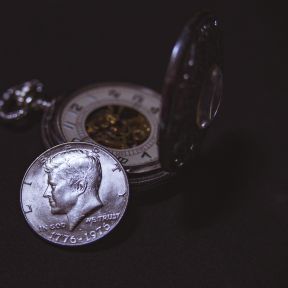Relationship Challenges
Some evidence suggests that the ability to form a stable relationship starts to form in infancy, in a child's earliest experiences with a caregiver who reliably meets their needs for food, care, warmth, protection, stimulation, and social contact. Such relationships are not destiny, but they have been theorized to establish deeply ingrained patterns of relating to others.
Adult relationships succeed or fail for many reasons beyond the partners' childhoods, of course. Most people have to work to master the skills necessary to make romantic relationships endure and flourish, and threats to their connection are sources of great psychological anguish.
For centuries, couples did not tend to spend several decades together as they do now, due to shorter lifespans and greater medical risk. So in a way, the challenges long-term partners face today may be seen as novel. But fundamentally, relationships are challenged because individuals change and their partners are forced to adjust. But many couples face the same types of crossroads moments, when crises arise and threaten their connection, such as the first year together; the arrival of children, and their eventual departure; the declines of old age; and the inevitable tragedies every person faces.
Relationship turbulence theory suggests that ongoing exposure to polarizing experiences such as jealousy, goal-blocking, closed communication, avoidance of difficult topics, and taking conflict personally can cause a couple’s connection to deteriorate. Identifying these potential crises early, and speaking about them openly, can save a relationship.
The most important factor the determines whether a couple can survive challenges to their relationship, research suggests, is simply whether they believe they can. Partners who are confident that they will stay together no matter what conflicts arise, and who believe they have the skills to maintain their connection, are much more likely to stay together for the long term.
It’s common, even in couples in which both partners work outside the home, for one to earn much more than the other, or to experience greater success or prominence in the community—and often it’s not the partner who seemed to be on that path when they met. Envy can be kept in check, though, when partners honestly recognize and value each other’s range of strengths and seek to support each other wherever they are.
Research on long-distance, long-term couples found virtually no difference between them and other couples: They reported equal levels of intimacy, communication, commitment, and sexual satisfaction. In fact, couples who were the most geographically distant were happier than those separated by moderate distance. Individuals who make long-distance relationships work tend to less stressed, more positive, and more confident in their ability to maintain relationships.
Between 5 and 10 percent of couples in the U.S. are in a “living apart, together” relationship—committed for the long term, but living alone in their own spaces. Such partners tend to be older; many have been divorced or widowed and place a high value on independence. They also report valuing flexibility and freedom, and finding that living apart limits conflicts with their partner as well.
For many, breaking the commitment to remain faithful to a spouse or partner is unthinkable. Yet nearly 20 percent of people have had sex with someone else while in a committed relationship. People cheat for a variety of reasons, but whatever the cause, it poses a serious challenge to the offended partner. Infidelity, however, doesn’t always lead a couple to split up. Whether a couple survives the challenge depends on the essential soundness of their connection, and whether the affair involved emotional as well as physical attachment: Research shows that more than 40 percent of men who have had affairs report that it was only about sex, while only 11 percent of women say the same.
For more, see Infidelity.
The discovery that a partner has cheated is devastating, but it does not always mean the end of a relationship. Many couples do find a way to stay together, and research suggests that a prime factor in the wronged partner’s decision to stay or go is their sense of how their personal social network of friends and relatives would advise them, or judge them.
People stray in relationships for a range of reasons, research has found, but the most common are falling out of love; seeking variety; feeling neglected; taking advantage of a tempting opportunity; boosting self-esteem; anger; lack of commitment; and high sexual desire.
Jealousy is a painful and unwelcome emotion that can trigger rage, insecurity, self-doubt, and embarrassment. It’s also nearly universal in relationships. One school of thought suggests that we should listen to jealousy, and not make it taboo, because it may be indicating an imbalance in commitment or a real threat from someone outside the relationship. It may also be an aphrodisiac, reminding us how passionately we feel about a partner.
For more, see Jealousy.
Many couples with different ages, heights, sizes, cultural backgrounds, ethnicities, or religions find significant happiness together, and in surveys they tend to say the same thing: The challenges they face, while real, are primarily external and not internal. The ability to tune out the judgment of others, whether strangers or close relatives, is core to their long-term satisfaction.
Historically, and even in current surveys, women generally express a preference to be with a slightly older man, and men to be with slightly younger women. But many couples with much larger age gaps thrive, though it’s more common for a man to be the older partner. One key to their success is “perceived age”—women view the older partner as younger than others do, and older partners see themselves as younger than their own biological age as well.
Couples in which a woman is the much older partner are less common but less rare, and more successful, than many people think. Often the woman has a higher sex drive than other partners her own age, and seeks someone younger who can keep up, try new things, and allow her to be in control. Some younger men want to date older women because they appreciate their attention and experience. They also may find greater equality in the relationship.
Interracial couples make up 17 percent of marriages in the U.S., a number that continues to rise. These relationships are most likely to succeed when partners can speak openly about conflicts over issues such as religion and different family traditions, when they view themselves as a team, and when they surround themselves with friends and relatives who support their bond.














